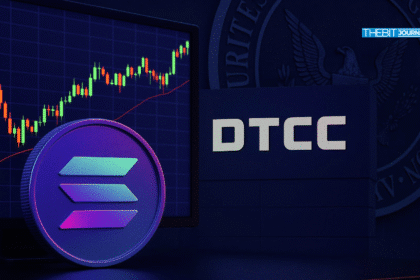According to the Florida Senate, Florida’s efforts to create a Strategic Bitcoin Reserve have come to an end. On May 3, 2025, House Bill 487 and Senate Bill 550 were officially cancelled and were removed from the process.
The state could have invested up to 10% of its selected funds in Bitcoin if these bills had been approved, but they were dropped after Florida’s session ended. This has created a major setback for their plan to create a state-level Bitcoin reserve.
This decision came at the same time when many other U.S. states were saying no to similar plans, even though there is growing excitement this year from the Bitcoin supporters and politicians.
Florida’s Bitcoin Reserve Plan Falters
The House Bill 487 and Senate Bill 550 are no longer active, but they would have allowed Florida’s chief Financial officer and State Board of Administration to invest public funds in Bitcoin.

The bill was introduced in February 2025, and at the time, Bitcoin was priced at $94,307. Many saw these bills as a bold step toward bringing new options to the state’s financial plans.
However, both bills failed to reach the final vote before the legislative session ended. Even though the Senate and House have agreed to extend the session until June 6 to work on the state budget, proposals related to Bitcoin were not included in any of the further discussions.
Lawmakers have managed to pass approximately 230 bills, which include topics like fluoride regulations, park protections and banning phones in schools. Based on the report outcome, out of the total 1,951 bills, only 243 bills managed to get approval by the end of Florida’s session. The Bitcoin Reserve bill, HB 487 and SB 550, did not survive.
More States Say No to Bitcoin Reserves, Including Florida
Florida is now part of a larger trend of U.S. states and is now rejecting bills to make a Bitcoin reserve. The same types of bills failed in South Dakota, Montana, etc, the bills were not able to pass the Senate or House votes in accordance with the Bitcoin laws.
Arizona is the state which got closest to creating a Bitcoin reserve, but it faced a major setback because on May 3, Governor Katie Hobbs had voted House Bill 1025. With the help of this bill, Arizona would have been able to invest seized funds in Bitcoin and made a reserve of digital assets.
Only a Few States are Still in the Race
More than 45 Bitcoin Reserve Bills were introduced this year, out of which only 36 are still active across 19 states. The legislative sessions are coming to an end, with Texas and New Hampshire taking the lead to push forward with their Bitcoin Reserve proposal, which is backed by political support and ongoing discussions in their legislatures.

Florida’s decision to withdraw from the race has shown that state-level Bitcoin investment has become uncertain and politically complicated, even though there was optimism at first. Utah, which was once leading the charge, has also removed an important part of its Blockchain bill, which would have allowed investment in digital assets.
Conclusion
The efforts for creating a Bitcoin reserve at the state level are losing their momentum, as Florida’s HB 487 and SB 550 have now been dropped. Even though there was excitement earlier, it has now been overshadowed by the political pushback, concerns about Bitcoin’s price swings and budget issues.
While supporters are trying to push for change, the future of Bitcoin reserve movement is still not clear, the hopes have now shifted to states like Texas or New Hampshire for progress.
FAQs
1. What did Florida recently do with the Bitcoin reserve bill?
Recently, lawmakers in Florida state cancelled the Bitcoin reserve bill.
2. Why was the Bitcoin reserve bill cancelled in Florida?
A Florida lawmaker withdrew the Bitcoin reserve bill because the legislature ended its session before it could be passed.
3. How would the bill have benefited Florida State?
The bill, if approved, would have benefited the state with 10% of state funds in Bitcoin.
4. When did Florida cancel the bill?
The two bills were cancelled by Florida on Saturday, May 3, 2025.
5. What was the value of Bitcoin when the bill was introduced?
When the bill was introduced, Bitcoin was trading roughly around $94,307 in February 2025.
Glossary
House Bill 487 – A proposed law in Florida that would have allowed the state to invest in Bitcoin.
Senate Bill 550 – A law similar to House Bill 487, focused on investing public funds in Bitcoin.
Legislative Session – Time when lawmakers meet to pass laws.
Financial Vote – Vote to approve financial decisions.
Extended Session – Extra time for lawmakers to work





























